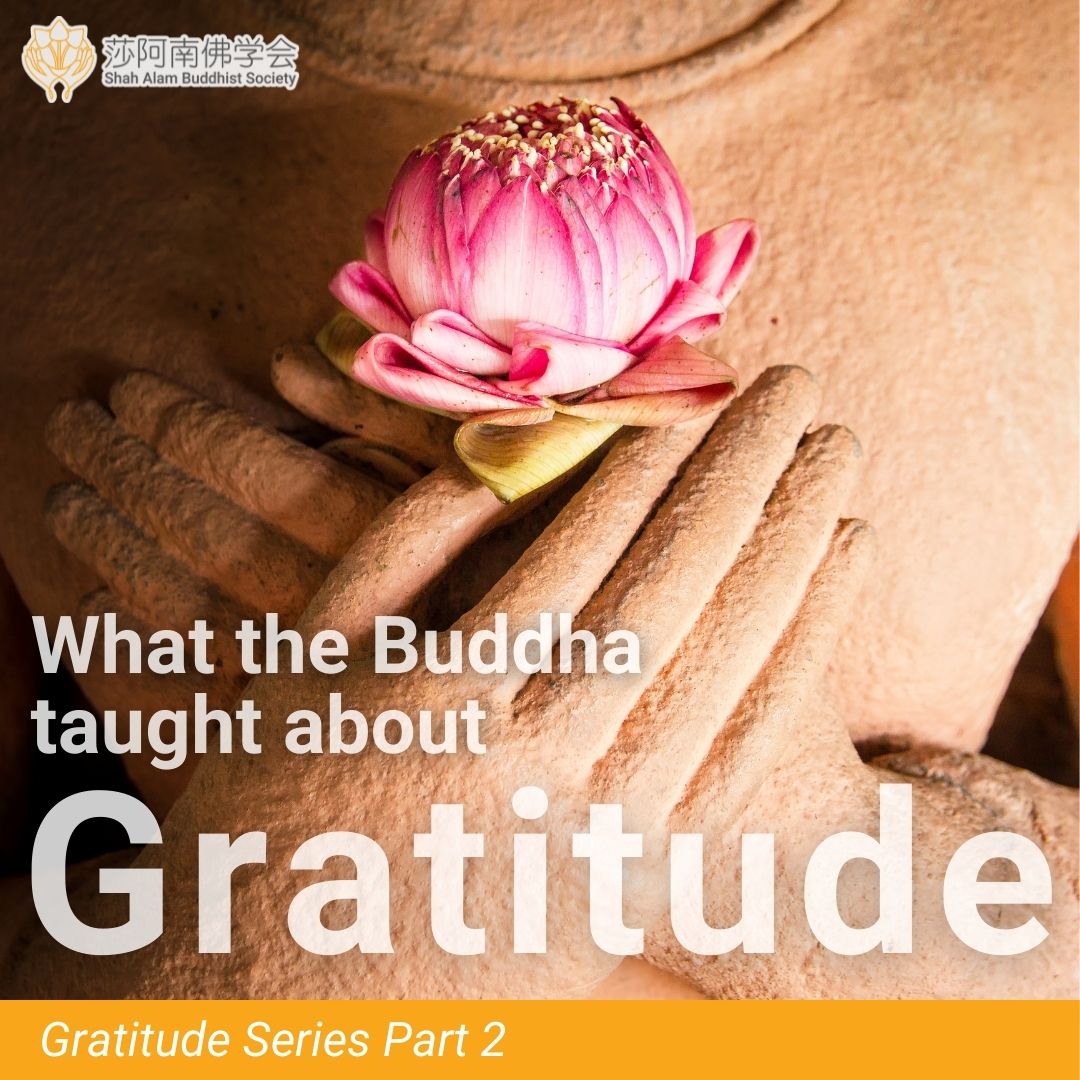What the Buddha taught about gratitude [Gratitude Series Part 2]

In the last article, we already see how gratitude promotes happiness – scientifically and physiologically. How about gratitude in the Buddhadhamma? Is gratitude important in cultivation? What did the Buddha taught about gratitude?
The Buddha taught that gratitude is to be cultivated as a habit or an attitude of mind. Gratitude is necessary for integrity, a quality of those with strong moral principles.
“Monks, I will teach you the level of a person of no integrity and the level of a person of integrity. Listen & pay close attention. I will speak.”
“As you say, lord,” the monks responded.
The Blessed One said, “Now what is the level of a person of no integrity? A person of no integrity is ungrateful & unthankful. This ingratitude, this lack of thankfulness, is advocated by rude people. It is entirely on the level of people of no integrity. A person of integrity is grateful & thankful. This gratitude, this thankfulness, is advocated by civil people. It is entirely on the level of people of integrity – Kataññu Sutta
In Buddhism, gratitude is an antidote for poisons such as greed, jealousy, resentment, and grief. Why is this so? When we are grateful, we feel satisfied and appreciate what is already present in our lives. We do not chafe at the good fortune of others, or resent or mourn over things that we missed, lost, or never had. The desire for more can be boundless and endless. There is always one more thing to want!

Image source: https://unsplash.com/photos/j9jZSqfH5YI
Training in gratitude requires developing the right perception about life and the world. For example, if we have strong perception of ‘I’ and ‘mine’ and perceive life as a competition, it’s hard to trust the motives of those who help us, and we will resent the need to repay their help as a gratuitous burden. If, however, we perceive that everything and everyone is interconnected, then the give and take of kindness or repaying of kindness becomes a much more pleasant exchange.
Gratitude requires mindfulness. In the Buddha’s original sense of the word, it means keeping something in mind. In Pali, the word for gratitude — kataññu — literally means to have a sense of what was done. In Saṃyutta Nikāya SN 48.10, the Buddha defines mindfulness as “remembering and able to call to mind even things that were done and said long ago.” As we develop our sense of gratitude, we get to practise in strengthening this quality of the mind.
The Dalai Lama says that gratitude is a way of embracing reality instead of fighting it. Gratitude brings us completely into the present moment. We are thankful for things that are here, right now. Good or bad, pleasant or unpleasant – all is IMPERMANENT!

Image source: https://unsplash.com/photos/rsznnAGAbZ0
Acceptance and gratitude occur simultaneously. The more space we make for them in our lives, the more we practise them, the less room there is for mental poisons to take root. Thus, gratitude IS a Dhamma gate, which means a teaching or practice that we can take up and explore, leading to insight and liberation!
—
Read the other posts in the series:
Gratitude – the simplest road to happiness [Part 1]
How to practise gratitude? [Part 3]
Gratitude in adversity [Part 4]


